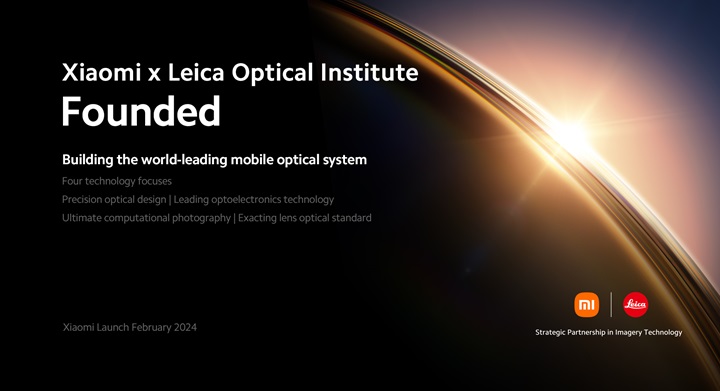 Xiaomi, one of the world’s leading smartphone companies, and Leica Camera AG jointly announced the establishment of the Xiaomi x Leica Optical Institute. The establishment of this institute marks a significant milestone in the smartphone industry. With optical technology at its core, this institute is poised to unite an array of integrated interdisciplinary sciences, including digital imaging and AI technologies.
Xiaomi, one of the world’s leading smartphone companies, and Leica Camera AG jointly announced the establishment of the Xiaomi x Leica Optical Institute. The establishment of this institute marks a significant milestone in the smartphone industry. With optical technology at its core, this institute is poised to unite an array of integrated interdisciplinary sciences, including digital imaging and AI technologies.
The Xiaomi x Leica Optical Institute, building upon its initial groundwork, is collaboratively developing a groundbreaking industry standard for optical performance in mobile devices, raising the bar both in terms of technology and user experience. This initiative places a strong emphasis on philosophy, technology, and user experience. Xiaomi 14 Ultra, a new flagship in mobile imaging, will serve as the first milestone in the practical evolution of this standard and is set to deliver unparalleled optical performance in the field of mobile imaging, with a scheduled release this month.
The Xiaomi x Leica Optical Institute will continuously promote deep innovation in mobile imaging optical technology, aiming to create an advanced mobile imaging optical system in this era of mobile photography. Leveraging the core strengths of both Leica and Xiaomi, the institute focuses on four major technical factors: designing ultra-precision optical lenses in a compact form factor, achieving ideal performance in computational photography, upholding the strictest optical standards for lenses, and conducting research and application of cutting-edge optoelectronic technology.
To achieve this goal, Xiaomi and Leica have invested significant resources and assembled a joint team of over 200 experts. Peter Karbe, the legendary optical designer behind the fourth-generation lenses from Leica including iconic designs like Noctilux and the APO series, will serve as Optical Expert. Zeng Xuezong, Senior Vice President of Xiaomi Group and President of the Xiaomi Mobile Phone Department, will serve as the Director. Yi Yan, Head of Xiaomi Group’s Software Technical Team, and Wang Xuanran, General Manager of Xiaomi Camera Department, will serve as Deputy Directors.
Xiaomi provides robust R&D resource support for the Institute. Currently, three major laboratories are planned in Beijing, with focuses on Camera Hardware, Imaging, and Objective and Subjective Image Quality Evaluation. Covering a total area of 2644m², these will be amongst the best, largest, and most automated camera laboratories.
Partner and President of Xiaomi Group, William Lu, stated: “For over a hundred years, Leica has been committed to creating world-class optical lenses, representing the epitome of intricate optical engineering design and exquisite manufacturing craftsmanship. Xiaomi believes that ‘light is the foundation of imagery’ and is the kernel and cornerstone of ‘giving reality a sense of depth.’ Through the Xiaomi x Leica Optical Institute, we will further leverage the respective strengths of both parties, continuously extend the boundaries of mobile imaging optical capabilities, and consistently lead the way in the mobile imaging era.”
Matthias Harsch, CEO of Leica Camera AG, expressed, “Our partnership with Xiaomi over the past two years has been truly remarkable. Together, we’ve successfully integrated the iconic Leica photography experience into the world of mobile imaging, exemplified by our co-engineered Leica Summilux optical lenses. The optical system within Xiaomi 14 Ultra represents our latest collaborative landmark, destined to lead the next generation of mobile optical imaging as the top Summilux lenses in mobile to date. With a legacy that spans over a century, Optics embody the technical legacy of Leica. Through the establishment of the Xiaomi x Leica Optical Institute, we are poised to bring together top-tier teams from both sides within the field of optics. Together, we are dedicated to spearheading a new era in mobile imaging optics, pushing the boundaries of mobile imaging and forging an advanced mobile imaging optical system tailored to our contemporary era.”

